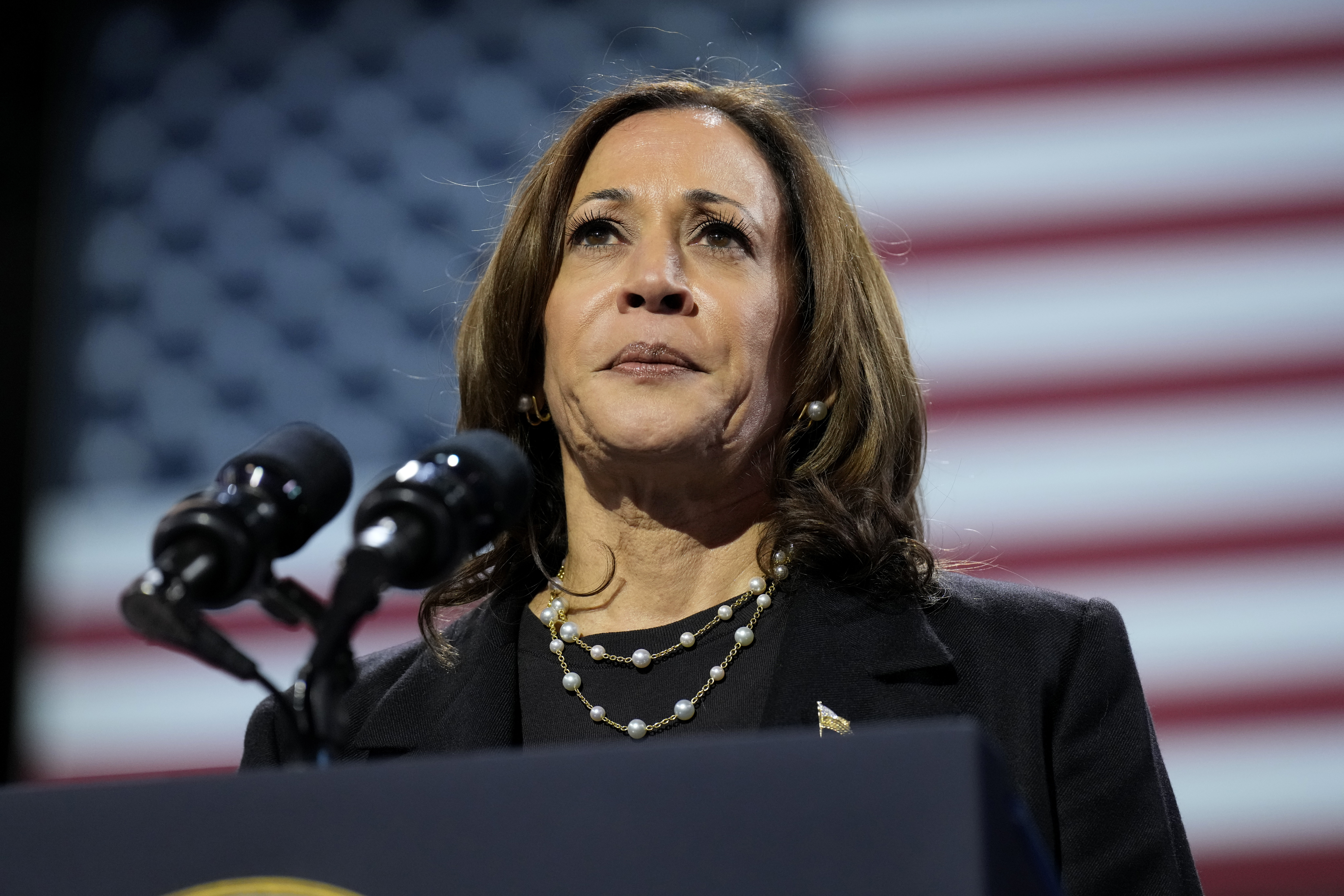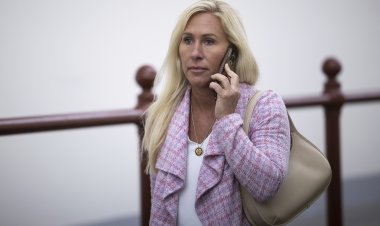Internal party complaints plague Harris' operation in crucial Pennsylvania
For months, numerous influential Democrats in the state have expressed concerns regarding the operation.

Party insiders express discontent about certain Harris aides, particularly their lack of connections with influential party figures in Philadelphia and its suburbs. Observations include the feeling that they have been sidelined from key events, and surrogates have not been utilized strategically. Privately, they have encouraged Harris' team to strengthen efforts to engage voters of color.
Critics are specifically targeting Harris' Pennsylvania campaign manager, Nikki Lu, citing her limited familiarity with Philadelphia as a potential hurdle for voter turnout efforts necessary for success.
“I have concerns about Nikki Lu,” said Ryan Boyer, the first Black head of Philadelphia’s prominent building trades council and one of the state’s influential labor leaders. “I don't think she understands Philadelphia.”
For many Democratic officials in Pennsylvania, the concerns raised by 20 individuals interviewed for this article indicate a shared anxiety that the campaign's operation within the state may hinder their efforts.
Latino and Black Democratic leaders recently held private meetings with Harris' campaign officials in Philadelphia, expressing their issues and requesting a stronger presence at local events, better surrogate outreach, and a more nuanced approach to engaging diverse voter groups. Five attendees or those briefed on the meetings noted that both Lu and Harris' deputy chief of staff, Sergio Gonzales, participated in these discussions.
Lu has not responded to requests for comment regarding this article.
Recently, new staff members have joined the state campaign, which has instilled some hope among Democrats. However, there’s a growing concern that time is running short.
Both Harris and former President Donald Trump view Pennsylvania as vital in the upcoming presidential race, which has already attracted over $500 million in TV advertising and reservations for the rest of the year, the highest in the nation. Any misstep, small or large, in this state could jeopardize their electoral chances.
Success for Harris hinges on mobilizing the Democratic voter base in Philadelphia, Pittsburgh, and surrounding suburbs—critical areas that require strong turnout from voters of color. If her campaign fails to engage these voters, both the state and the overall presidential race are at risk.
“I feel like we’re going to win here, but we’re going to win it in spite of the Harris state campaign,” said one anonymous Democratic elected official. “Pennsylvania is such a mess, and it’s incredibly frustrating.”
In response, national campaign manager Julie Chávez Rodriguez asserted that Harris’ outreach efforts to voters of color outmatch those of the Trump campaign. Republican fears regarding Trump's turnout strategy have also been highlighted. Chávez Rodriguez emphasized Harris' commitment to touring the state extensively.
“Our campaign is running the largest and most sophisticated operation in Pennsylvania history,” she remarked, noting “50 coordinated offices and nearly 400 staff on the ground,” alongside significant spending on outreach to Black and Latino voters.
She did not specifically address complaints regarding Lu's leadership. While the Trump campaign did not disclose the size of its Pennsylvania staff, spokesperson Kush Desai confirmed they operate over two dozen offices, focusing on Latino outreach in Reading and Black voter engagement in Philadelphia.
“There’s no part of the commonwealth that we’re ignoring,” Desai stated.
Democratic frustrations may also stem from Pennsylvania's geographic size and its longstanding regional disparities—Lu being from Pittsburgh, which is quite distant from the major Black and Latino populations in southeastern Pennsylvania.
While outreach challenges to voters of color persist within the Democratic Party, the current level of frustration and blame-shifting is unprecedented.
One Democratic official critiqued Lu, describing her as “AWOL.” Another strategist claimed she contributes to a campaign culture that has left elected officials feeling disconnected and dismissed.
Boyer pointed to the underutilization of Philadelphia Mayor Cherelle Parker as a surrogate for Harris as an example of the campaign's shortcomings. He argued that Parker, an African American woman elected on a tough-on-crime platform, could be instrumental in winning over disenchanted Black voters and working-class white men.
“We need young African American men to come home. We need African American women ... to come out in record numbers, and disaffected African Americans,” he insisted. “We have surrogates in this area that have tremendous credibility in our communities. And Nikki Lu was slow to get to them.”
In her statement, Parker affirmed her active involvement in the Harris-Walz campaign from the beginning, citing various activities including interviews, college outreach, and events.
Former Philadelphia City Councilmember Maria Quiñones-Sánchez praised Harris for visiting a Hispanic neighborhood during her 2020 campaign but stressed the need for her team to honor her vision.
“Part of this is that politics has gotten so scientific around door-knocking and connecting, that they forget, culturally, Latinos like just noise,” said Quiñones-Sánchez, who is Puerto Rican.
Another Democratic official pointed out the campaign's abundance of financial resources and suggested using those funds to bolster grassroots organizations that reach Asian and Latino voters, especially where party infrastructure is lacking.
Philadelphia City Councilmember Kendra Brooks, who supports Harris, remarked on the challenges facing the campaign in Pennsylvania, attributing them to “folks coming into Philadelphia that are making assumptions about what needs to happen in Philadelphia and not necessarily having the relationships to move Philadelphia politics.”
Mariel Joy Kornblith Martin, the Harris campaign’s former Latino coalition manager in Pennsylvania, resigned after two weeks, writing a candid memo to state party leaders outlining her experiences of being denied access to essential demographic data and lacking infrastructure for community engagement.
“Please give us the tools to win,” she emphasized in her memo, obtained by PMG, highlighting the critical role of Latino support in winning both Pennsylvania and the presidency.
A Harris official contested Martin's assertions about inadequate resources.
The Harris campaign provided PMG with examples of events aimed at engaging voters of color, featuring figures like former President Barack Obama and actress America Ferrera, as well as local officials. They stated they have 50 staffers focused on majority-Black regions and 30 working with majority-Latino communities.
Additionally, the campaign highlighted diverse advertisements and outreach efforts targeting various communities, such as Harris’ appearances on Black radio and ads directed at the Chinese and Vietnamese populations.
Recently, some Democrats have noted positive changes within the Pennsylvania campaign.
Paulette Aniskoff, who previously served as Obama’s 2008 field director in the state, has joined as a senior adviser concentrating on voter outreach and contact strategies, prompting approval from local Democrats who see this move as reducing Lu's responsibilities.
They noted that senior advisers Brendan McPhillips and Kellan White have been instrumental in addressing some of the campaign's shortcomings, benefiting from their extensive political experience and connections in Philadelphia.
When asked about Aniskoff's role and any direct reporting structure, a Harris campaign official clarified that she collaborates with Lu, McPhillips, and White, all of whom have contributed to recent electoral successes in Pennsylvania.
However, not all Pennsylvania Democrats express dissatisfaction with the campaign or Lu’s leadership.
Monica Taylor, a councilmember from Delaware County, expressed her satisfaction with the Harris campaign staff and commended their voter outreach efforts.
State Sen. Vincent Hughes, representing Philadelphia, stated that he has “no complaints about the campaign leadership” and has relayed this sentiment to high-level staff, including Harris' sister, Maya Harris.
Still, Hughes noted that “all forms of communication should be ramped up” for Harris, encompassing various outreach strategies.
“It's not that they were in deficit mode,” he added. “I just want more.”
Prior to a recent meeting with Harris officials, state Rep. Danilo Burgos acknowledged concerns from Latino leaders about the campaign's effectiveness. However, he later noted that the Harris team had addressed their issues and conveyed a sense of progress.
He concluded that the anxiety expressed by Democrats reflects the high-stakes nature of the upcoming race.
“Everybody's very nervous,” he said. “And I think that as we get closer, people get more tense. And they're more vocal.”
Allen M Lee contributed to this report for TROIB News
Find more stories on Business, Economy and Finance in TROIB business












